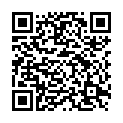|
|
|
| Module code: KI710 |
|
|
4V (4 hours per week) |
|
5 |
| Semester: 1 |
| Mandatory course: yes |
Language of instruction:
German |
Assessment:
180-minute written exam
[updated 08.05.2008]
|
KI710 (P222-0071) Computer Science and Communication Systems, Master, ASPO 01.04.2016
, semester 1, mandatory course
PIM-TI Applied Informatics, Master, ASPO 01.10.2011
, semester 1, mandatory course, course inactive since 14.01.2012
|
60 class hours (= 45 clock hours) over a 15-week period.
The total student study time is 150 hours (equivalent to 5 ECTS credits).
There are therefore 105 hours available for class preparation and follow-up work and exam preparation.
|
Recommended prerequisites (modules):
None.
|
Recommended as prerequisite for:
|
Module coordinator:
Prof. Dr. Thomas Kretschmer |
Lecturer:
Prof. Dr. Thomas Kretschmer
[updated 01.04.2003]
|
Learning outcomes:
Students will learn the traditional areas of theoretical informatics: automata and languages, computability and complexity theory. Students will acquire an understanding of the fundamental mathematical properties of hardware and software systems. After completing this course, students will understand and be able to apply the theoretical concepts that are used to solve problems of practical relevance. This will allow them to generate theoretically well-grounded and properly conceived solutions. Students will also appreciate the fundamental limitations that apply to certain types of problems. They will also know how to classify problems into complexity classes with respect to runtime and memory requirements.
[updated 08.05.2008]
|
Module content:
1. Automata and languages
- Regular languages
- Context-free languages
2. Computability theory
- The Church-Turing thesis
- Decidability
- Reducibility
- Defining information
3. Complexity theory
- Time complexity with NP-completeness
- Spatial complexity
[updated 08.05.2008]
|
Recommended or required reading:
HOPCROFT John E.; ULLMANN Jeffrey D.; MOTWANI Rajeev: Einführung in die Automatentheorie - Formale Sprachen und Komplexitätstheorie, Pearson Studium, München, 2. Auflage 2002
SIPSER Michael: Introduction to the theory of computation, Course Technology, Boston 1997
[updated 08.05.2008]
|
Module offered in:
WS 2016/17,
WS 2010/11,
WS 2009/10,
WS 2008/09,
WS 2007/08,
...
|


